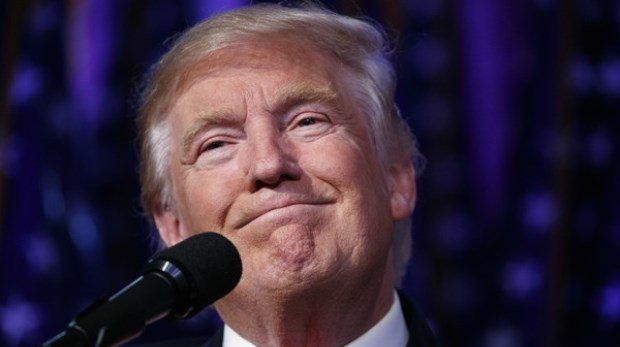2/2: Court could be reshaped fundamentally
Trump’s replacement of Scalia with a similar conservative will not affect the Court's ideological balance. Yet three of the Court's more liberal members are over 78. If Trump is able to nominate a replacement for one or more of them, the Court's ideological balance could be tipped for decades. At this point, Senate Democrats might invoke the so-called 'filibuster' rule. This antique curiosity of Senatorial custom allows Senators to prolong debate on a subject indefinitely. The only way to stop debate – and allow a vote on the President’s nominee – is to gain 60 votes. The filibuster rule allows a minority in a split Senate to block judicial appointments indefinitely, and the Democrats will surely invoke it to stop a highly conservative Trump nominee.
The problem, though, is that the filibuster rule is only a tradition. Republicans could simply change the rule, allowing judges to be confirmed by a mere 50 plus vote majority. (Democrats, faced with Republican filibusters of Obama's lower-court nominees, already eliminated the 60-vote requirement for lower-court judges in 2013.)
Changing the rule for Supreme Court justices is by no means inevitable and would be a jarring break with tradition – but so was Trump's election. If the Senate eliminates the filibuster rule and Trump lets conservative aides pick judges, he could reshape the federal court system fundamentally. Trump will not have to convince a single Democrat to vote for any of his nominees, allowing him to make much more conservative choices than any previous Republican president. For liberal Americans, this would be a disaster, casting into doubt historical decisions on gay marriage, legalized abortion, the death penalty, and dozens of other crucial issues. Conservatives will see this as merely a corrective for eight years of Barack Obama, who appointed over 300 judges – one third of the federal judiciary – and generally chose liberals.
The World is far away, thank God
Both Trump and his judges will have little interest in binding the United States to multilateral commitments. One of the clearest strands in Trump’s ideology is isolationism, a centuries-old tendency in American politics. Isolationists view the two massive oceans separating America from the rest of the world as a blessing, and see little reason why the United States should meddle in the internal affairs of other countries, either by military action or by aggressive diplomacy. Trump has criticized the Iraq war (after initially supporting it) and American participation in helping Gaddafi's fall. When confronted with arguments that globalization is "inevitable" and closer ties are unavoidable in our modern world, isolationists reject them as the typical cant from machine politicians and special interests who will benefit from globalization and neoliberal policies. Trump is only one of dozens of politicians recently coming to power on the platform of renewed interest in autonomous nation-states with strong borders.
His proposal to build a wall on the US-Mexico border is clearly legal under U.S. law, questions of cost and practicability aside. The same can be said for his proposal to temporarily ban Muslim immigration. Provided the ban only applies to non-citizens and people who do not have legal residency in the United States, it would be constitutional. The U.S. Supreme Court has repeatedly held that immigration policy is a question for the other branches of government, and that the government may discriminate on any basis it chooses when it comes to regulating immigration, since foreign nationals do not have a protected legal interest in entering the United States. Indeed, Congress has already delegated to the President so much authority that President Trump could ban Muslims with a simple executive order, not even requiring a Congressional law.
Campaign bluster or sincere plans
In his rambling, stream-of-consciousness interviews and speeches, Trump suggested he embraced waterboarding and revenge strikes against the families of terrorists. He has suggested that NATO is much too reliant on American military might, and that European NATO allies must start shouldering more of the defense burden. He also endorsed punishing tariffs to protect American industries. He does not believe in international global-warming accords, and has promised to nullify President Obama's executive agreement with Iran to restrict that country’s nuclear ambitions.
The most important question facing America – and the world – is whether these statements were mere campaign bluster. Any move to actually implement these policies could invoke stiff resistance from the US military and diplomatic corps, and from American allies. Trump may well climb down from these more extreme positions. He may make minor policy changes, sell them as fundamental, and declare his campaign promises fulfilled. On the other hand, he may feel compelled by his base to fight hard for the radical change they expect. In that case, he will be a bull in the china shop of American diplomacy and trade policy.
We will find out much in the coming weeks as Trump’s cabinet choices emerge and his policy team comes together. If they are as unconventional as the first choices indicate, both America and the world will be in for four stormy years of unpredictable change. And of course, that will be just what the voters who elected Trump wanted.
The author, Andrew Hammel, is former Professor for American Law at Heinrich Heine Universität Düsseldorf, and is currently a writer and translator, and teaches as an adjunct professor at several German universities.
United States Presidential Election: . In: Legal Tribune Online, 15.11.2016 , https://www.lto.de/persistent/a_id/21157 (abgerufen am: 01.09.2024 )
Infos zum Zitiervorschlag







